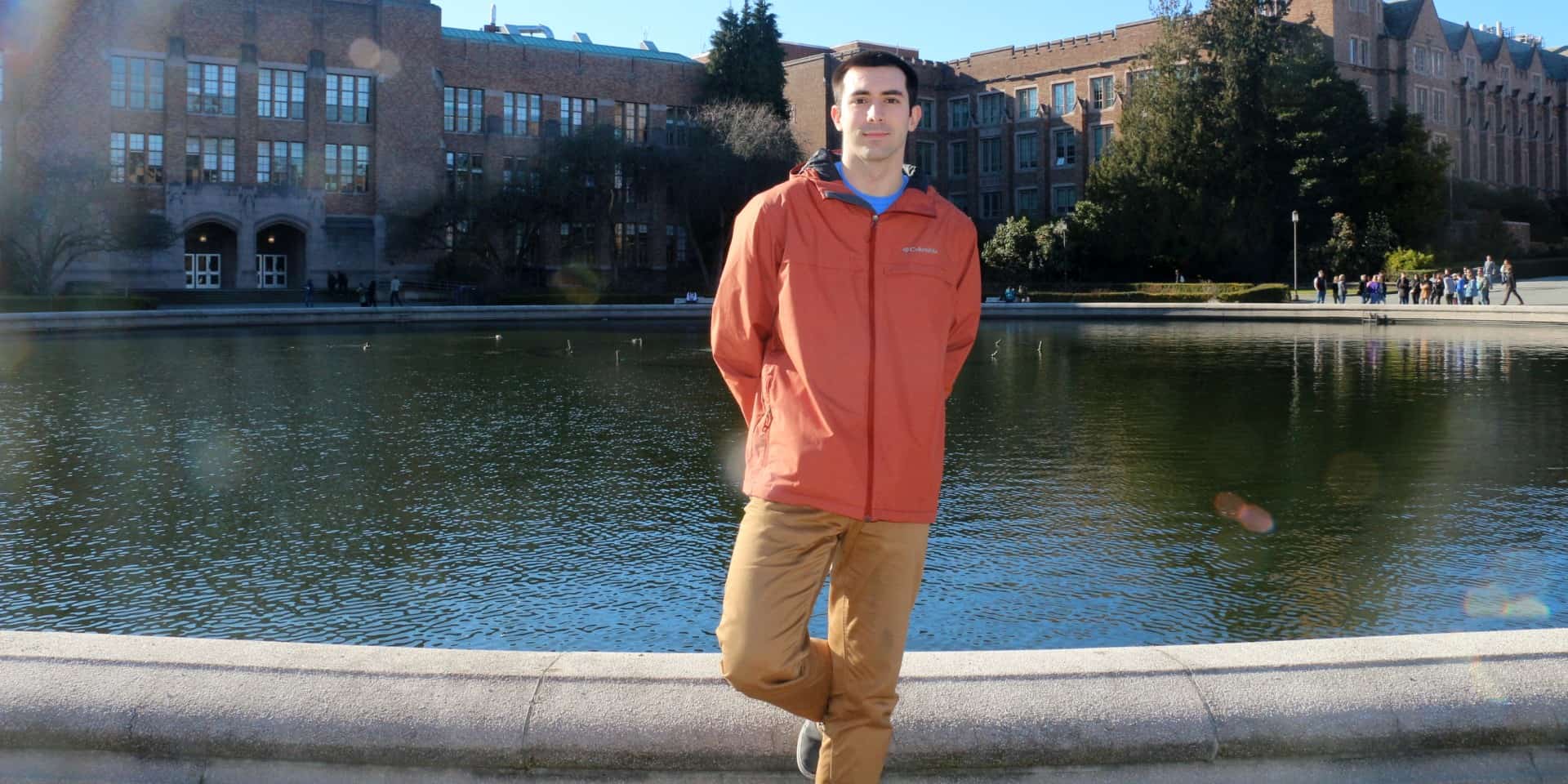Levi Davis is a senior in the Department of Bioengineering and Department of Applied Computational Mathematics at UW, pursuing the team design capstone track. For his capstone project, he is researching ultrasound catheter imaging under the guidance of Curtis Genstler and Alex Hannah at EKOS. Levi is also an undergraduate researcher at the Center for Limb Loss and Mobility laboratory at the US Department of Veterans Affairs, where he is studying reconstruction and imaging techniques. After graduation, he is planning to attend graduate school.
“I have a very non-linear path to BioE compared to other people in the major. During high school, I had no interest in school. I actually did not graduate on time and was a fifth year high school student. Also, I did Running Start at Bellevue College during high school, which is a program that allows high school students to take classes at a community college. It was mostly to get out of high school and I did nothing productive during my time there, mostly PE classes. Actually, I never even passed geometry in high school even though I took it twice. I remember doing well on the tests but never doing the homework, which is essential in high school. I was interested in sports, friends and my part-time job. School was not something that interested me during that period.
When I graduated high school, I watched everyone that I knew go to colleges or trade schools while I was not really doing anything. This is the moment I started to realize that I need to get my head on straight and figure out where my interests and skills lay. I was interested in mechanics and liked working on my motorcycle, so I thought I could be a mechanic as a profession. I was also interested in athletics in high school, so I also thought I could maybe do something along the lines of physical therapy as well. After a year of not doing anything I decided to enlist in the National Guard, spending eight months in basic training.
Joining the National Guard was a way to accomplish multiple things at once. First, it provided me a way to later join the Army as a mechanic and see if being a mechanic was what I really wanted to do. Second, it provided me a way to go back to school, and to get help to pay for it. Also, I needed something to whip me into shape and I figured the Army would do that, which it definitely did. I am now much more focused than I ever was before. I learned how to focus on tasks and motivate myself, as well as what my limits are. I have the discipline to focus on specific tasks and say no to others. In that way, the National Guard really helped to put my head on straight.
After the national guard, I returned to Bellevue College and started on a track to study physical therapy. While I was a volunteer at a hospital in a physical therapy unit, I realized that the engineering side was considerably more intriguing. This led me to talk to my advisor at Bellevue College and he introduced me to BioE. From there I started taking pre-reqs for BioE, including a substantial amount of math. For a long time I actually did not think that I was smart enough to do math or engineering, which probably stemmed from me not trying to succeed since middle school as well as seeing how other students were progressing in math while I was stuck in the low tier math classes. I had to start all the way at the beginning with math, namely trigonometry. Overall, I had to take a lot of classes at Bellevue College since I had a 2.0 GPA, which is not helpful to get into any college. Foremost I had to build my GPA into a competitive one by taking all of my pre-requisite classes for BioE at Bellevue College, and eventually transfer to UW.
The first quarter in BioE was really hard. It almost felt like the first day of my National Guard training. During the first day of my training, people stood in a semicircle and just yelled at you the whole time, dubbed the ‘shark attack’. All trainees are just in a state of confusion and no one knows what is going on, similar to how it first felt in BioE. During the first quarter of BioE, they really drop us in there. I got the lowest score on the first paper assigned in BIOEN 315, and was as lost as a clownfish in the ocean. I felt as if I was the dumbest person in my cohort. However it definitely got better as I became accustomed to the work. The National Guard really instilled a sense of perseverance in me that helped me get through that quarter. Also, the BioE department makes you really used to repeatedly facing failure. This is a highly advantageous skill to have, especially for graduate school where you are expected to fail quite often. I think that is a big pro of the BIOE department. You learn to fail, repeatedly, and then you learn how to succeed.”


